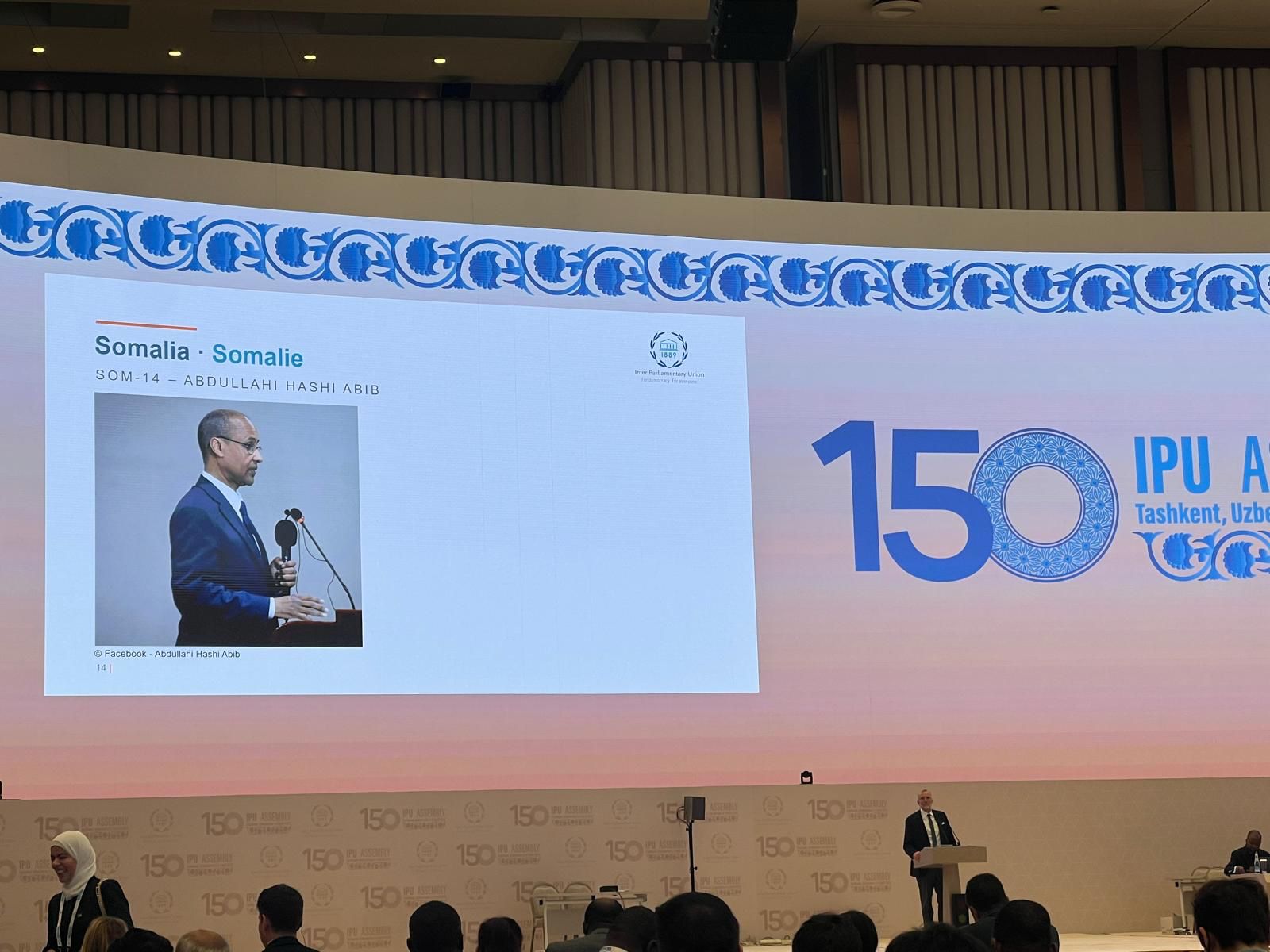Tashkent, Uzbekistan – A forthcoming report by the Inter-Parliamentary Union (IPU) is expected to deliver a serious rebuke to the leadership of Somalia’s Federal Parliament over the illegal eviction of Dr. Abdillahi Hashi Abib, a sitting Member of Parliament. The development emerged during the 150th IPU Assembly and related meetings Saturday, 5 April 2025 – Wednesday, 9 April 2025 Tashkent, Uzbekistan, where the IPU Executive Committee reportedly briefed its member delegations on the findings of its investigation.
According to multiple reliable sources present at the closed-door discussions, the IPU has concluded that the removal of Dr. Hashi Abib constituted a grave violation of Somalia’s Constitution, parliamentary procedures, and broader international norms governing legislative institutions. The report, described as “deeply damaging” to the credibility of both the Speaker and the Federal Parliament, is expected to be released publicly in the coming days.
The investigation found that the Speaker’s actions, allegedly executed under direct instruction from the Office of the President, disregarded due process and the principle of parliamentary independence. One senior delegate, who requested anonymity due to the sensitivity of the matter, noted that the IPU leadership attempted to hold a formal meeting with the Somali delegation – led by the Second Deputy Speaker and the Permanent Secretary of Parliament—but the Somali officials reportedly refused to engage. This refusal was interpreted by IPU officials as a further indication of disregard for democratic accountability and the rule of law.
Sources warn that the consequences may extend beyond censure. The IPU is said to be considering recommending sanctions that could bar Somalia’s Parliament and its leadership from future participation in global and regional parliamentary forums, including the Arab League Parliamentary Union, the Pan-African Parliament, and the East African Legislative Assembly.
Legal observers and governance experts have described the scandal as a new low for Somalia’s legislative leadership, accusing them of subordinating the rule of law to political expediency and personal gain. “This is yet another black mark against a parliamentary leadership that has allowed itself to be weaponized by the executive,” said one expert in parliamentary law. “Instead of defending the Constitution, they have aligned themselves with an agenda that undermines it.”
The pending report may have far-reaching implications for Somalia’s international standing and its engagement with democratic institutions. With growing scrutiny from global parliamentary bodies, the question now turns to whether domestic accountability mechanisms will act – or whether impunity will continue to reign.
Under President Hassan Sheikh’s leadership, Somalia has been marred by rampant corruption and nepotism. Deputy Special Representative of the AU Chairperson to Somalia, Siyuvile Bam, just days ago informed the Security Council that Al-Shabaab has established bases on the outskirts of Mogadishu, and that AUSSOM faces a dire financial crisis threatening the mission’s very survival. Amid fears of national collapse, the president has called for a reconciliation conference. However, the exclusion of Jubaland State and SSC-Khatumo, Somalia’s newest interim state, has cast doubt on the conference’s viability.
> Daljir Media, Investigative Correspondent


COMMENTS